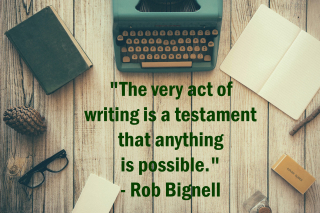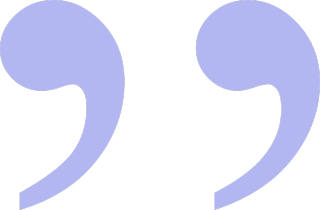Rob Bignell's Blog, page 232
November 16, 2017
How to offer workshops based on your books
One way  authors can utilize their books to make money beyond selling copies is by offering workshops. As an author ��� especially if of a nonfiction book ��� you���re an expert on the topic you wrote about and so can teach others about it. Pay will pay for expert advice, so workshops about your subject matter can generate revenue all on their own while drawing attention to and boosting sales of your titles.
authors can utilize their books to make money beyond selling copies is by offering workshops. As an author ��� especially if of a nonfiction book ��� you���re an expert on the topic you wrote about and so can teach others about it. Pay will pay for expert advice, so workshops about your subject matter can generate revenue all on their own while drawing attention to and boosting sales of your titles.
Workshops often prove successful because they are intimate settings you which you get to work personally with potential or current fans of your writing. When you spend a few hours or a day with them, imparting your knowledge and experiences, you develop a long-time reader or client.
The first step in setting up a workshop is to determine your presentation���s topic. To do that, simply look at chapters of your book. Ideally, you���ll find a topic that draws upon various sections of your book; for those who���ve bought your book, this then is not just a repeat of what they read, as the repackaging allows them to see and experience your book in a new light. In addition, if you already have a speech or talk written that you���ve deliver, you can expand upon it to fit the workshop���s time length.
Once you have a topic, you���ll need to prepare your presentation. Begin by penning an outline then writing a manuscript you work from. As writing the manuscript, add audience involvement such as written exercises, group exercises, group discussions, or questions you can ask participants so they can better understand or self-discover your points. Their participation will ensure they pay more attention and help them connect with you. Then create visuals to go with the presentation; pictures and summary points in a Power Point-style approach helps attendees better grasp your key ideas. Lastly, create some resources, such as checklists or guides, that you can hand out during the presentation. This helps focus their attention on your key points and to can useful for them to take home and refer to when applying your techniques or ideas.
Next, you���ll need to book a location and date. It might be a hotel conference room, could be done at a conference already underway, or in a library or other civic area that rents space. Book the workshop in a city where you probably can get a large enough audience to attend. The booking should be done at least a couple of months out from the actual date you plan to give the workshop, as you���ll need to promote it. Saturdays or weekday evenings other than Friday tend to work best. Never plan a workshop on a holiday or during a holiday weekend. For example, the Saturday before Thanksgiving usually is fine but the Wednesday before Thanksgiving through the Sunday after should be off limits. Too many people simply have family obligations or will be traveling, reducing attendance.
How much to charge for the workshop will depend on how well known you are and the cost of presenting it. The newer you are to the workshop game, the less you can charge; you can make up for this by aiming for a larger audience. As you do more workshops and publish more successful books, your reputation speaks for itself and the more you can charge. Always make sure, though, that you can earn enough to cover your expenses, which include renting a room, photocopies of handouts, snacks at the workshop, and any hotel-meal-gas expenses you may have in getting to the workshop location. Whatever you do, though, don���t underprice yourself. See what other workshop speakers are charging and go with it.
Lastly, you���ll need to promote yourself. This means posting it on your website, your social media accounts, and sending out a flier about it to everyone on your email list. Also, send press releases to local media in the market where you���re giving your presentation. Always include information about where people can sign up for your workshop, which should be your website.
During the presentation, be sure to include a table with all of your books on it. Before the workshop, during breaks, and after the presentation, you���ll want to have the table manned so you can sell copies and interact with attendees.
Professional Book Editor: Having your novel, short story or nonfiction manuscript proofread or edited before submitting it can prove invaluable. In an economic climate where you face heavy competition, your writing needs a second eye to give you the edge. I can provide that second eye.
<span style="font-family: &quot;trebuchet ms&quot;, geneva; font-size: 10pt;" data-mce-style="font-family: 'trebuchet ms', geneva; font-size: 10pt;">&lt;A HREF=���http://ws-na.amazon-adsystem.com/widg... Widgets&lt;/A&gt;</span>
Related articles
 Five Great Quotations about the Writing Process
Five Great Quotations about the Writing Process Writing Inspiration: Seek another's advice
Writing Inspiration: Seek another's advice Make tables readable in your self-published book
Make tables readable in your self-published book Writing nonfiction: Direct quotations, paraphrases - Inventing Reality Editing Service
Writing nonfiction: Direct quotations, paraphrases - Inventing Reality Editing Service
November 15, 2017
Editing clients publish book for college students
Three recent  editing clients have published their first book, which aims to help college students cope with a variety of mental health issues. ���Mental Health and the Adaptation to College: A Handbook for Residence Advisors Paperback,��� by Philip K. McCullough MD,��� Kristen M Granchalek, LCSW, and Chris Ogle, MA, was released Monday.
editing clients have published their first book, which aims to help college students cope with a variety of mental health issues. ���Mental Health and the Adaptation to College: A Handbook for Residence Advisors Paperback,��� by Philip K. McCullough MD,��� Kristen M Granchalek, LCSW, and Chris Ogle, MA, was released Monday.
The transition to college places vast demands on students to quickly adjust to new circumstances, all without the safety net of friends, family and close relationships. For some, that transition is bumpy, for others derailing. Suicide is the second leading cause of death for 18-34 years old. A full 75 percent of mental illness will first appear between the ages of 15-25. More than 40 percent of young adults report an alcohol or substance abuse issue. But intervention can make all the difference, ensuring students not only complete college but turn their lives around.
���Mental Health and the Adaptation to College��� helps resident assistants and other student life professionals to differentiate between the normal ���aches and pains��� of adjustment to college life and the kinds of symptoms indicating the need for more serious treatment. This handbook draws upon the authors��� combined eight decades of experience in college student health service and young adult mental health: McCullough is a member of the faculty at the Feinberg School of Medicine of Northwestern University; Granachalek is cofounder of Alliance | Collaborative Psychotherapy, a private therapy practice that specializes in treating young adults in transition; and Ogle is Vice President and Dean of Students at Ripon College.
The book is available online in paperback and ebook.
Professional Book Editor: Having your novel, short story or nonfiction manuscript proofread or edited before submitting it can prove invaluable. In an economic climate where you face heavy competition, your writing needs a second eye to give you the edge. I can provide that second eye.
<A HREF=���http://ws-na.amazon-adsystem.com/widg... Widgets</A>
Related articles
 Five Great Quotations about the Writing Process
Five Great Quotations about the Writing Process Writing Inspiration: Seek another's advice
Writing Inspiration: Seek another's advice Make tables readable in your self-published book
Make tables readable in your self-published book
November 14, 2017
5 Great Science Fiction Writing Prompts
Science  fiction stories typically arise from a novum, a scientifically plausible concept that is a ���reality��� in the tale. The novum might be an mechanical device like robot servants, artificial intelligence, or faster-than-light spacecraft; it also can be a hypothetical idea such as ���The Earth is a scientific experiment run by aliens to determine the meaning of life��� or ���The government outlaws books.��� The author then asks ���What if?��� exploring how the world with this novum is different than ours.
fiction stories typically arise from a novum, a scientifically plausible concept that is a ���reality��� in the tale. The novum might be an mechanical device like robot servants, artificial intelligence, or faster-than-light spacecraft; it also can be a hypothetical idea such as ���The Earth is a scientific experiment run by aliens to determine the meaning of life��� or ���The government outlaws books.��� The author then asks ���What if?��� exploring how the world with this novum is different than ours.
Among the problems of many novice science fiction writers is instead of introducing a new novum they rely on used furniture ��� that is, they borrow novums from popular SF series. After all, how many novels have you read that use starships exploring the galaxy for the Earth-based Federation? Barely changing names to appear as if you are not appropriating ��� a starcraft seeking M-class worlds for the Earth-centered Alliance ��� still doesn���t cut it as original or fully using the potential that science fiction offers to examine our culture or humanity.
To help SF writers, here are some novums of potential near-future inventions from which stories could be built:
Abandoned cities
As global warming raises water levels, many coastal cities will be wiped out; Bangkok faces this threat as early as the 2030s. How would the few people who remain on the few yet-to-be-submerged sections of these abandoned cities live?
Gene therapy for deafness
What if some people believe that being born with a defect is a genetic right that should not be taken away? How will this debate play out in a world where gene therapy can solve deafness to make one ���normal���?
Last gorilla
What if there were only one gorilla left in the wild? What would the last days of that gorilla���s life be like?
Memory restoration
What if a brain implant could restore lost memories? How would the ���recovery��� of memories change a person���s life and that of her family?
Nano medic
As technology advances, new jobs that utilize it will emerge. One such job of the mid-21st century is likely to be a ���nano medic.��� What is an ethical issue a nano medic might face during a typical workday?
Professional Book Editor: Having your novel, short story or nonfiction manuscript proofread or edited before submitting it can prove invaluable. In an economic climate where you face heavy competition, your writing needs a second eye to give you the edge. I can provide that second eye.
&amp;amp;amp;amp;amp;amp;amp;amp;amp;amp;amp;lt;span style=&quot;font-family: &amp;amp;amp;amp;amp;amp;amp;amp;amp;amp;amp;amp;quot;trebuchet ms&amp;amp;amp;amp;amp;amp;amp;amp;amp;amp;amp;amp;quot;, geneva; font-size: 10pt;&quot; data-mce-style=&quot;font-family: &#39;trebuchet ms&#39;, geneva; font-size: 10pt;&quot;&amp;amp;amp;amp;amp;amp;amp;amp;amp;amp;amp;gt;&amp;amp;amp;amp;amp;amp;amp;amp;amp;amp;amp;amp;amp;amp;amp;lt;A HREF=���http://ws-na.amazon-adsystem.com/widg... Widgets&amp;amp;amp;amp;amp;amp;amp;amp;amp;amp;amp;amp;amp;amp;amp;lt;/A&amp;amp;amp;amp;amp;amp;amp;amp;amp;amp;amp;amp;amp;amp;amp;gt;&amp;amp;amp;amp;amp;amp;amp;amp;amp;amp;amp;lt;/span&amp;amp;amp;amp;amp;amp;amp;amp;amp;amp;amp;gt;
Related articles
 Five Great Quotations about the Writing Process
Five Great Quotations about the Writing Process Writing Inspiration: Seek another's advice
Writing Inspiration: Seek another's advice 5 Great Sci-Fi Writing Prompts - Inventing Reality Editing Service
5 Great Sci-Fi Writing Prompts - Inventing Reality Editing Service 5 Science Fiction Writing Prompts - Inventing Reality Editing Service
5 Science Fiction Writing Prompts - Inventing Reality Editing Service 5 Writing Prompts for Science Fiction Writers
5 Writing Prompts for Science Fiction Writers
November 13, 2017
6 Easy Ways to Improve Your Writing Style

��� Crack a joke ��� but only for a good reason
��� Delete nulls from your novel, short story
��� Don't be guilty of polysyllabism (Huh?)
��� Why you should avoid being sensational
��� Vary syntax to give writing flavor, texture
��� Watch for verb tense shifts in your writing
��� BONUS: "Always be a poet, even in prose." - Charles Baudelaire
Professional Book Editor: Having your novel, short story or nonfiction manuscript proofread or edited before submitting it can prove invaluable. In an economic climate where you face heavy competition, your writing needs a second eye to give you the edge. I can provide that second eye.
&amp;lt;A HREF=���http://ws-na.amazon-adsystem.com/widg... Widgets&amp;lt;/A&amp;gt;
Related articles
 Writing Inspiration: Seek another's advice
Writing Inspiration: Seek another's advice Five Great Quotations about the Writing Process
Five Great Quotations about the Writing Process Make tables readable in your self-published book
Make tables readable in your self-published book Four ways to write a great tweet that sells books
Four ways to write a great tweet that sells books
6 Easy Ways to Improve Your Writing Style

��� Crack a joke ��� but only for a good reason
��� Delete nulls from your novel, short story
��� Don't be guilty of polysyllabism (Huh?)
��� Why you should avoid being sensational
��� Vary syntax to give writing flavor, texture
��� Watch for verb tense shifts in your writing
��� BONUS: "Always be a poet, even in prose." - Charles Baudelaire
Professional Book Editor: Having your novel, short story or nonfiction manuscript proofread or edited before submitting it can prove invaluable. In an economic climate where you face heavy competition, your writing needs a second eye to give you the edge. I can provide that second eye.
&amp;amp;amp;amp;amp;amp;amp;lt;A HREF=���http://ws-na.amazon-adsystem.com/widg... Widgets&amp;amp;amp;amp;amp;amp;amp;lt;/A&amp;amp;amp;amp;amp;amp;amp;gt;
Related articles
 Five Great Quotations about the Writing Process
Five Great Quotations about the Writing Process Writing Inspiration: Seek another's advice
Writing Inspiration: Seek another's advice Make tables readable in your self-published book
Make tables readable in your self-published book Four ways to write a great tweet that sells books
Four ways to write a great tweet that sells books Always be a poet, even in prose. - Charles Baudelaire - Inventing Reality Editing Service
Always be a poet, even in prose. - Charles Baudelaire - Inventing Reality Editing Service
November 12, 2017
5 Great Quotations about Originality
���The one  thing that you have that nobody else has is you. Your voice, your mind, your story, your vision. So write and draw and build and play and dance and live as only you can.��� - Neil Gaiman
thing that you have that nobody else has is you. Your voice, your mind, your story, your vision. So write and draw and build and play and dance and live as only you can.��� - Neil Gaiman
���No one has the right to enter literature without fresh new ideas. We���ve got too many dexterous drudges as it is.��� - Jan Neruda
���Everything that needs to be said has already been said. But since no one was listening, everything must be said again.��� - Andre Gide
���No man who bothers about originality will ever be original: whereas if you simply try to tell the truth (without caring twopence how often it has been told before) you will, nine times out of ten, become original without ever having noticed it.��� - CS Lewis
���The first man to compare the cheeks of a young woman to a rose was obviously a poet; the first to repeat it was possibly an idiot.��� - Dali
Professional Book Editor: Having your novel, short story or nonfiction manuscript proofread or edited before submitting it can prove invaluable. In an economic climate where you face heavy competition, your writing needs a second eye to give you the edge. I can provide that second eye.
&lt;A HREF=���http://ws-na.amazon-adsystem.com/widg... Widgets&lt;/A&gt;
Related articles
 Five Great Quotations about the Writing Process
Five Great Quotations about the Writing Process Writing Inspiration: Seek another's advice
Writing Inspiration: Seek another's advice Make tables readable in your self-published book
Make tables readable in your self-published book Four ways to write a great tweet that sells books
Four ways to write a great tweet that sells books
November 11, 2017
Every success story begins with a dream. If you dream of...

Every success story begins with a dream. If you dream of being a professional, published author, that success story requires believing in yourself and in knowing that your efforts will lead to triumph. Read the motivational blog entry this quotation came from by clicking on the quote card.
Professional Book Editor: Having your novel, short story or nonfiction manuscript proofread or edited before submitting it can prove invaluable. In an economic climate where you face heavy competition, your writing needs a second eye to give you the edge. I can provide that second eye.
&amp;lt;A HREF=���http://ws-na.amazon-adsystem.com/widg... Widgets&amp;lt;/A&amp;gt;
Related articles
 Five Great Quotations about the Writing Process
Five Great Quotations about the Writing Process Five Humorous Thoughts about Writing - Inventing Reality Editing Service
Five Humorous Thoughts about Writing - Inventing Reality Editing Service Five Great Quotations about Business of Writing - Inventing Reality Editing Service
Five Great Quotations about Business of Writing - Inventing Reality Editing Service Four writing prompts: Race - Inventing Reality Editing Service
Four writing prompts: Race - Inventing Reality Editing Service Editing client publishes her first SF novel - Inventing Reality Editing Service
Editing client publishes her first SF novel - Inventing Reality Editing Service
November 10, 2017
How authors build a brand to sell more books
As an  author, you want to build a brand. And for any author, his or her name almost always is the brand.
author, you want to build a brand. And for any author, his or her name almost always is the brand.
Readers look forward to their favorite author���s next book. If you���re on of those favorites, that means they liked the first book they read of yours and have come to equate your name with quality reading. The more books of yours they read, then the more your name becomes the mark that they associate with a certain style of book and quality writing they like.
Your challenge then ��� in the marketing aspect of your writing career, at least ��� is to get them to pick up that first book of yours so they can get hooked and then to make sure they don���t forget your name and are aware of when your next title is released.
Be forewarned: That is going to take some time to accomplish, and it will require ongoing work to maintain.
Establish your brand
Begin by determining what your brand will be. Will you use your real name, a modified version of your name (such as abbreviating your first and middle names to two initials), or a pen name? What type of books will you write and what will be their tone?
Always be consistent every time you refer to and present yourself. All of your books must use the same name, your website must use that name, all of your social media and press releases must use that name, your business cards must use that name. Use the same avatar and if possible the same color scheme across social media platforms and all other promotional efforts as well; if someone doesn���t perfectly recall your name, the avatar and color scheme will help them be more certain that they���ve come to the right author.
Next, establish who is the audience for your brand. This will in large part depend upon the genre you write, as genders and age groups tend to prefer specific literary forms. Find that target audience on social media and elsewhere online, as you want to focus on selling your books and brand to those readers. Your message to this audience should be how your books meet a need of theirs ��� a style of writing they enjoy, a subject matter they are interested in, and so on. You will tailor your tweets and sales pitches to meeting those readers��� needs and wants.
Differentiate yourself
As you promote yourself on social media, your website, and elsewhere, always differentiate yourself from the competition. Remember, hundreds of books are released every month in your genre; you must convince readers to purchase your book rather than all of the others.
To achieve this, ask yourself what sets your books apart from the competition? For example, you might pen hard science fiction that doesn���t forget the value of characters who grow, or rollicking adventure tales based on sound science, or near future stories in which the problems read in your tales today are those that readers will experience tomorrow. This feature of your writing must be emphasized constantly across all of your platforms. Focus in your messages how this makes your books important to your potential customer ��� that is, your books meet their needs and wants.
Along with this, also ask if there are unique ways you can successfully build your brand. While you want to do what works for the competition (such as an email list), you don���t want to write books exactly like theirs or repeat their marketing failures. For example, if you write near future stories in which ���the problems read in my stories today you will experience for real tomorrow,��� perhaps post pictures of those inventions, which are currently in research development, on Instagram. Those interested in such innovations will find you ��� but not other, less savvy authors ��� through those photos.
In addition, you want to establish a ���voice��� that is used across your promotional efforts. Your voice is the tone you take; it might be friendly, informative, serious, irreverent, self-deprecating, or any of a thousand other emotional states. This voice should match your avatar/color scheme and the genre you write in (an irreverent avatar, for example, wouldn���t work well with a serious non-nonsense voice). It also should resonate with your target audience. Whichever voice you decide, your messages should be conversational in tone by using ���I��� and ���you��� and share stories about real experiences, such as ���behind-the-scenes��� material from your writing and research.
Brand building done consistently over time will help you sell more books as readers who love your kind of writing can more easily find and follow you. ���A brand is a story always being told,��� former Starbucks executive Scott Bedbury once wrote. Well, for an author, telling a good story is what it���s about, so you should be fantastic at building a brand!
Professional Book Editor: Having your novel, short story or nonfiction manuscript proofread or edited before submitting it can prove invaluable. In an economic climate where you face heavy competition, your writing needs a second eye to give you the edge. I can provide that second eye.
<span style="font-family: "trebuchet ms", geneva; font-size: 10pt;" data-mce-style="font-family: 'trebuchet ms', geneva; font-size: 10pt;"><A HREF=���http://ws-na.amazon-adsystem.com/widg... Widgets</A></span>
Related articles
 Five Great Quotations about the Writing Process
Five Great Quotations about the Writing Process Writing Inspiration: Seek another's advice
Writing Inspiration: Seek another's advice Make tables readable in your self-published book
Make tables readable in your self-published book
November 9, 2017
Generate business with membership site
One great  way for authors to generate business is a membership site. This is a private website that people pay a monthly fee to join so they can receive exclusive content and usually the ability to interact with one another. Among the unique content you might include are monthly seminars, guest speakers, monthly Q&A calls, member forums, and weekly emails to members about your website���s highlights and forum topic discussions.
way for authors to generate business is a membership site. This is a private website that people pay a monthly fee to join so they can receive exclusive content and usually the ability to interact with one another. Among the unique content you might include are monthly seminars, guest speakers, monthly Q&A calls, member forums, and weekly emails to members about your website���s highlights and forum topic discussions.
Running a membership site offers several advantages. First, it can be a source of regular monthly income, especially if you set up an autopay system for members. In addition, you���re now able identify a group of loyal customers who you can stay in touch with. There���s no better way to sell a book than making a personal connection. Finally, your website can be a proving grounds for new book ideas as you discuss concepts, offer samples, and receive feedback.
Of course, there���s a downside to running a membership site: You must constantly create new content. This can cut into your regular writing time or compete with other items on your busy schedule. You can turn this downside into an advantage, though, if you plan to use t least some of this content in new books you will publish.
Setting up a membership site is fairly easy albeit initially time-consuming. Begin by designing a website. Examine other membership sites that cover topics similar to yours to get ideas. Also look for what they���re not doing so that you can differentiate yourself from them. Then begin building the website and creating content for it. Once you���ve got the site looking the way you���d like it to, go to the next step of promoting it. Use all of your book���s social media platforms ��� such as Twitter, Facebook, and your blog ��� to announce its launch and each time new material is posted to it.
Start at a very low fee. You want to build membership and get people talking about the site. As you have probably very little content to offer when the website starts, the low fee makes up for it. Once you have more to offer and membership has grown, then raise your prices. In addition, you may want to offer a discounted price for some. You���ll inevitably have people say they can���t afford a membership. Some of them may be trying to scam you into giving away something for free, but the majority probably are being honest. Giving discounts to students and senior citizens can help ensure some of those people do sign up for a membership.
You must constantly maintain your membership site. Specifically, you have to regularly come up with new content for members and you have to interact with them. To meet those challenges, you could:
��� Add regularly scheduled blog posts, Q&As, and courses. Only introduce one at a time so that you don���t overwhelm members, though.
��� Host live seminars/webinars every three months in which members can ask you questions.
��� Post daily in forums, specifically by offering members tips, advice and encouragement.
��� Start new topics on forums, especially when existing ones don���t generate much interaction.
��� Hold regular hours in a text chat room or a private Facebook group in which members can talk with you.
��� Provide online group events and challenges, such as writing so many words per day. Members then can share their successes and encourage one another. You even could offer prizes (such as exclusive access to new content or free copies of your book) to those who succeed.
��� Update your home/welcome page every couple of days. Point out new material as well as old material that members may have missed.
��� Offer a contact form in which members can email you.
Always remain flexible with your membership site. See where your members��� interests take you. For example, if you write murder mysteries and originally planned to focus on how to pen a mystery but find that your members are more interested in general writing tips or how to self-publish a book, run with it.
Professional Book Editor: Having your novel, short story or nonfiction manuscript proofread or edited before submitting it can prove invaluable. In an economic climate where you face heavy competition, your writing needs a second eye to give you the edge. I can provide that second eye.
&lt;A HREF=���http://ws-na.amazon-adsystem.com/widg... Widgets&lt;/A&gt;
Related articles
 Five Great Quotations about the Writing Process
Five Great Quotations about the Writing Process Writing Inspiration: Seek another's advice
Writing Inspiration: Seek another's advice Make tables readable in your self-published book
Make tables readable in your self-published book
November 8, 2017
Writing nonfiction: Direct quotations, paraphrases
When writing  academic papers or nonfiction books, you���ll likely needed to include the thoughts and observation of experts to bolster your positions or explain your points. These experts��� statements can be presented either as direct quotations and as paraphrases.
academic papers or nonfiction books, you���ll likely needed to include the thoughts and observation of experts to bolster your positions or explain your points. These experts��� statements can be presented either as direct quotations and as paraphrases.
A direct quotation provides the expert���s words exactly as they were written or spoken. Should the quotation be shorter than 40 words, they need to be placed in quotation marks:
Bignell (2013) asserts that writing talent likely isn���t genetic: ���There���s no doubt, however, that some people spend their formative years garnering the experiences and mastering the skills that later will make them good storytellers.���
If the quotation is 40 words or more, then you would use a block quotation:
Bignell (2013) posits that hard work can play a greater role than genetics in becoming a great writer:
In any case, there are those with ���less��� talent who work at making themselves writers ��� and their writing shines brighter than many who are talented. Remember, George Orwell once was viewed as an average kid with no talent; today he is considered one of the greatest writers of the 20th century.
Depending on which style (MLA, APA, Turabian, Chicago Manual, etc.) you���re using to write the paper or nonfiction book, you���ll need to cite the quotation by including at least the name of the quoted expert, the year the book was published or speech given in which the quote appears, and probably the page number in the book. When researching, always write down the author, book title, year the book was published, the publishing company and the city it was published in, and the page number for every quotation and note taken; this will save you time later.
A paraphrase is restating the expert���s words in your own. Sometimes you can state the expert���s ideas in a short or more exciting way; sin such instances, a paraphrase is preferable to reading a long or a dull passage. You also want to cite the expert when paraphrasing, though often a page number isn���t required.
The previously used quotation could be paraphrased as:
Bignell (2013) believes that even if some people are genetically inclined to be great writers, hard work still can produce quality literature, as was the case with Orwell.
Professional Book Editor: Having your novel, short story or nonfiction manuscript proofread or edited before submitting it can prove invaluable. In an economic climate where you face heavy competition, your writing needs a second eye to give you the edge. I can provide that second eye.
&amp;amp;amp;amp;amp;amp;lt;span style="font-family: &amp;amp;amp;amp;amp;amp;amp;quot;trebuchet ms&amp;amp;amp;amp;amp;amp;amp;quot;, geneva; font-size: 10pt;" data-mce-style="font-family: 'trebuchet ms', geneva; font-size: 10pt;"&amp;amp;amp;amp;amp;amp;gt;&amp;amp;amp;amp;amp;amp;amp;amp;amp;lt;A HREF=���http://ws-na.amazon-adsystem.com/widg... Widgets&amp;amp;amp;amp;amp;amp;amp;amp;amp;lt;/A&amp;amp;amp;amp;amp;amp;amp;amp;amp;gt;&amp;amp;amp;amp;amp;amp;lt;/span&amp;amp;amp;amp;amp;amp;gt;Related articles
 Five Great Quotations about the Writing Process
Five Great Quotations about the Writing Process Writing Inspiration: Seek another's advice
Writing Inspiration: Seek another's advice Make tables readable in your self-published book
Make tables readable in your self-published book



